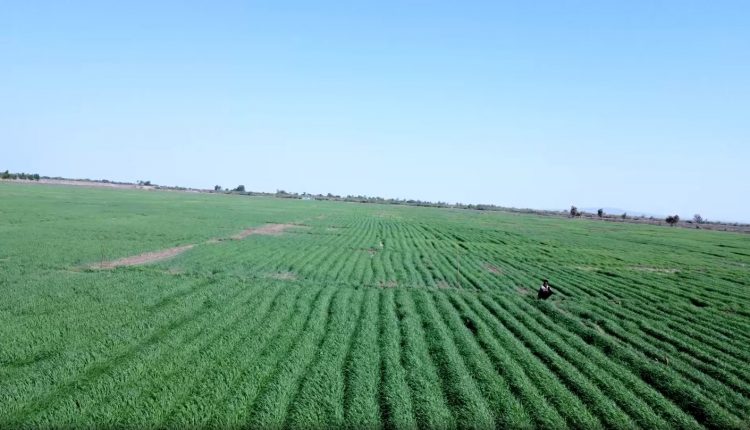Revolutionizing Food Security: A New Vision for Africa

Redefining Food Security Across Africa
Addis Ababa, March 15, 2025 (ENA) — In an age when discussions about food security across Africa are intensifying, the pressure on African countries has reached unprecedented levels. According to the United Nations Food and Agriculture Organization (FAO), food security means ensuring everyone has regular access to sufficient, safe, and nutritious food. Although this description highlights the necessity of steady food supplies, it may unintentionally foster dependency on imported goods and external aid. On the contrary, food sovereignty offers a different strategy aimed at strengthening local communities through greater participation in managing food systems. This modern concept supports boosting domestic agriculture and aligns with governmental programs designed specifically for each community’s distinct requirements.
The present state of food security across Africa presents a bleak scenario. In just over twenty years, the count of people facing hunger has surged by 100 million, reaching an alarming total of 298 million. Nevertheless, this overall statistic masks significant regional disparities. Nations including Nigeria and the Democratic Republic of Congo struggle intensely, whereas countries such as Senegal, Cameroon, Ivory Coast, and particularly Ethiopia, have shown notable success in lowering levels of undernutrition. Even though some nations have improved their situation, the larger continental outlook remains static, with the most recent year for achieving widespread reductions in undernourishment being 2009.
A major barrier to progress in Africa is the underuse of its vast agricultural assets. Despite having productive soil and abundant natural resources, numerous African countries face challenges due to insufficient technology and mechanization. The lack of proper infrastructure—including poor road networks, deficient storage options, and sparse irrigation systems—exacerbates these issues. As a result, many regions heavily depend on imported foods, collectively shelling out approximately $80 billion per year globally, including around $16 billion solely for wheat purchases. This dependence drains economic value away from the continent, making it susceptible to fluctuations in international markets.
Achieving the dream of food sovereignty requires a crucial change: moving away from just maintaining a consistent flow of food supplies towards building robust domestic food production systems. Instead of bringing in completed food items that hinder local economies, attention should be redirected toward importing vital components such as semi-processed goods and farming materials to enhance homegrown output.
Essential for this shift is a thorough reassessment of current policies, focusing on governmental backing via grants, safeguards, and programs designed to strengthen local manufacturers. Such a significant change might foster increased cooperation among regions, steering the continent away from ad-hoc trading structures towards a more structured framework.
The food scenario in Africa becomes even more intricate due to swift changes in demographics. Despite having a lower population density relative to Asia and Europe, Africa is witnessing substantial increases in population size. Currently home to about 1.5 billion people and expected to rise to around 2.5 billion by 2050—with the potential to double again to 4 billion by 2100—this expansion presents both challenges and possibilities for the future.
Effectively managing an increasing population can lead to a fairer spread of communities, establish “food hubs,” and encourage a bigger, more competent labor force that can boost infrastructure development and drive advancements in agriculture.
In the quest for food self-sufficiency across Africa, Ethiopia emerges as a symbol of optimism. Having been reliant on imported wheat previously, the country has witnessed what people often refer to as a "wheat revolution."
Through the adoption of heat-tolerant crop varieties along with increased use of machinery and water management techniques, the country has effectively shifted from relying on imports to achieving self-sufficiency. Creating a strategic grain storage system overseen by the Ethiopian Food Security Reserve Administration further bolsters these advancements, establishing Ethiopia as an exemplar in agricultural output within Africa. This shift improves domestic nutrition safety nets and offers a blueprint for other countries across the continent aiming for independence in their food supply chains.
However, the path to self-reliance in food systems goes further than the successes achieved by single nations. Africa needs to focus on developing robust and autonomous food systems that reduce reliance on international providers. The approach of turning food supply chains into security measures—which involves suppliers keeping extra stockpiles and acquiring farmland overseas—should be minimized. Rather, emphasis should be placed on boosting trade within the continent.
Programs such as the African Continental Free Trade Area (AfCFTA) play a crucial role in promoting regional specialization and collaboration. Moreover, investing in infrastructure—which is vital for producing and distributing food—can unleash unutilized agricultural capabilities and guarantee an even spread of advantages throughout different areas.
Food sovereignty is intricately linked with strategic self-governance. As the continent shifts towards reducing reliance on imports and external assistance, it gains the ability to function as an autonomous entity within the global marketplace and geopolitical landscape. African nations will then have greater capacity to formulate strategic choices free from the sway of major world powers and multinational banking organizations.
Although ensuring food security continues to be an essential aim, shifting towards food sovereignty presents a broader and more uplifting perspective for Africa’s upcoming years. By emphasizing domestic agricultural capacities, supporting government-driven initiatives, and encouraging cross-border collaboration, countries across Africa could start reducing dependence on imported goods and foreign assistance.
Ethiopia’s narrative demonstrates that through appropriate tactics and financial commitments, achieving food sovereignty isn’t merely a lofty aspiration but a feasible objective—offering enhanced food accessibility along with greater economic resilience across Africa as a whole.





